Pharma Industry News Update: 19 May 2017
The Coming Pharma Digital Transformation Many pharmaceutical companies are operating well-established business processes that are not optimized for the digital era. This is leading to inefficiencies and missed opportunities. Arno Sosna, General Manager of Commercial Products at Veeva , describes efforts that are underway to overcome these inefficiencies and improve communications with physicians.
Credibility of Pharma Information Online:
Many Physicians Are Dissatisfied
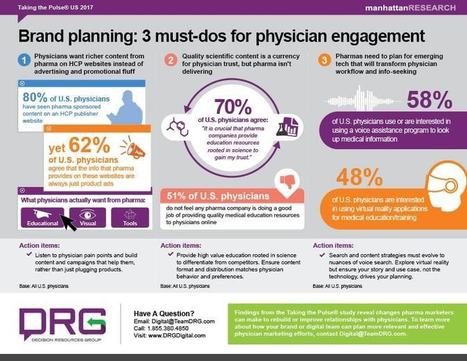
[From www.beckershospitalreview.com] Physicians often look to pharmaceutical companies’ websites for educational information about their products. But as pharma firms step up digital advertising efforts, only 27 percent of physicians said they still consider pharma websites credible sources for medical data.
That finding comes from Manhattan Research’s “Taking the Pulse U.S. 2017” study. The report is based on responses from 2,784 U.S. physicians across more than 25 specialties, and aimed to examine physicians’ use of emerging technologies as well as their communication habits (read #Pharma Should Dial Down Promotion & Dial Up Education for Docs to Regain Their Trust).
Roughly 70 percent of physicians said it is essential pharma companies provide “education resources rooted in science” to gain physician buy-in. Yet about half of physicians surveyed said no pharma company provides quality scientific information online.
Soap Opera Marketing:
How General Hospital Does Disease Awareness
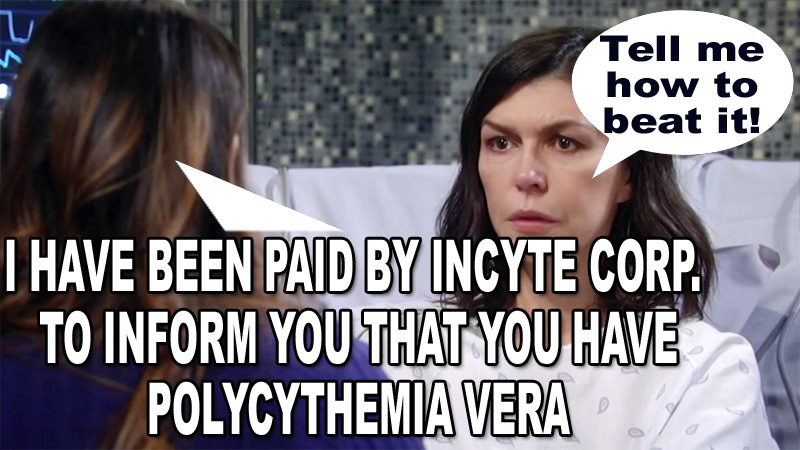
[From www.vox.com and statnews] “There’s no easy way to put this, Anna,” said Dr. Griffin Munro, a former Catholic priest who is also the out-of-wedlock son of Devane’s mob-connected ex-husband. “You have cancer” – specifically, the rare blood cancer polycythemia vera.
Devane’s doctor warns her that if she leaves her disease untreated, she may suffer a heart attack or stroke. When the doctor suggests she start on the usual treatments for the disease – anticoagulation drugs and drawing blood, Devane asks “But this protocol sounds like you are treating the symptoms of this cancer; how do we beat it?”
The authors of a JAMA paper said these comments “may constitute subtle promotion of ruxolitinib” – Incyte’s drug, which is not mentioned by name in the episode.
Further Reading:
- Are We at the Saturation Point Viz-a-Viz Celebrity Pharma Endorsements?
- #Pharma “Disease Awareness” Ads: Are They “Stealthy” Fear Mongering Set Pieces?
- The History, Effectiveness & Ethics of Celebrity Drug Endorsement
PharmaGuy’s insight:
In 2005, the Roseland, N.J., firm placed posters for its Nuvaring contraceptive in the backgrounds of NBC’s Scrubs and CBS’ King of Queens. Since then, it has added ABC’s Grey’s Anatomy to its list, according to brand director Lisa Barkowski. “A lot of the feedback we get is from healthcare professionals,” she said. “They mention it to [our] reps, ‘Wow, I saw that poster.’ It reinforces in their mind; it makes them think of the product.”
Danny Glover’s Laugh Helps Nuedexta’s Sales Soar!

[From www.nytimes.com] The 60-second TV advertisement, aired widely until late last year, has raised questions about the role of direct-to-consumer advertising – typified by ads that call on you to “ask your doctor” about possible treatment – in promoting the use of medicines for uncommon conditions far beyond the narrow population of people who most benefit from them.
Pseudobulbar affect, or PBA, is a neurological condition characterized by inappropriate, uncontrolled outbursts of laughing or crying. The ad did not mention any drug by name. But it was sponsored by Avanir Pharmaceuticals, the California firm that manufactures Nuedexta, a medicine that targets the disorder. The ad ends by referring viewers to a “Facts About PBA” website and a toll-free number.
The market has proved lucrative. Nuedexta’s sales rose to $218 million last year from about $37 million in 2012.
Nuedexta has also attracted attention because it is expensive, more than $700 a month for a supply of twice-a-day pills. The drug is a combination of two low-cost ingredients – an over-the-counter cough medicine and a generic heart drug – that, purchased separately, would run roughly $20 a month, according to online cost estimators.
PharmaGuy’s Insight:
I took the PBA assessment “tool,” which was developed by “healthcare professionals and is called the Center for Neurologic Study-Lability Scale (CNS-LS).” I was assured that my answers to the seven “simple questions will help your doctor determine if [I] could have PBA.” Of course, I scored way above the cutoff score of 13, which “accurately predicted neurologists’ diagnoses for 82% of participants” in the above cited study. Or, as Avanir says, “may suggest PBA symptoms and should be discussed with your doctor.”


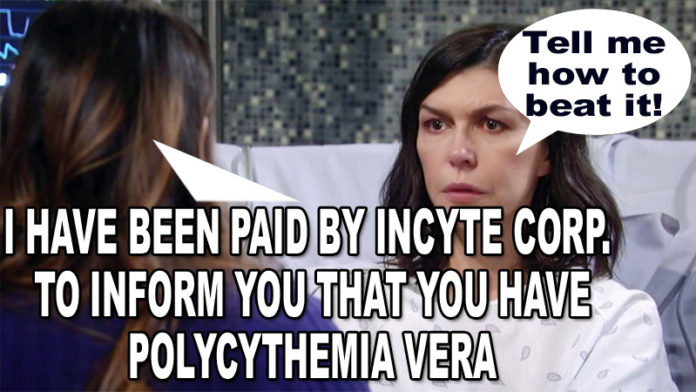



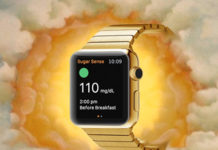
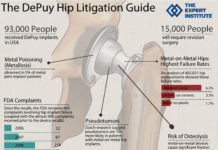

![6 Digital Tools at the Center of Healthcare Digitalization [INFOGRAPHIC]](http://ec2-54-175-84-28.compute-1.amazonaws.com/pharma-mkting.com/wp-content/uploads/2021/04/6DigitalTools_600px-100x70.jpg)




